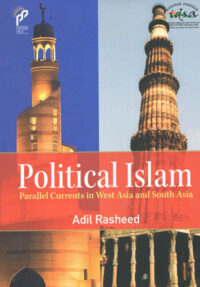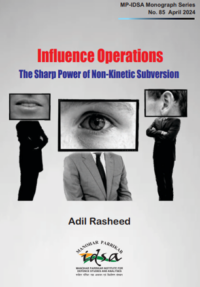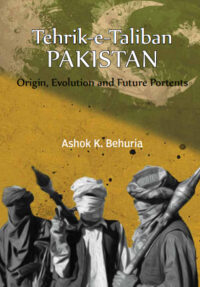Escalating Tensions between Pakistan and the Taliban
Border clashes and failure to act against the Tehreek-e-Taliban Pakistan (TTP) have led to rising tensions between Afghanistan and Pakistan.
- Saman Ayesha Kidwai
- December 09, 2022



As the origins, scope and impact of terrorism and violent extremism extend beyond conventional security and military paradigms — covering religious, political, socio-economic, demographic and at times historical vectors— the onus for developing effective and comprehensive counter-terrorism and counter-radicalisation campaigns falls within the purview of eminent research institutes like the Manohar Parrikar Institute for Defence Studies and Analyses (MP-IDSA).
It is for this reason that the MP-IDSA has established the Counter Terrorism Centre, which will look into various aspects of terrorism as well as ways of developing effective counter-terrorism strategies and campaigns. In addition to studying the complexities involved in the process of terrorism, the centre would seek to develop counter-radicalisation and counter terror financing strategies and programmes.
The Purpose
The purpose of MP-IDSA’s Counter Terrorism Centre is four-fold:
The Mission
To be the premier counter-terrorism centre of the country in terms of research and analyses, for developing policy studies and campaigns through enhanced connectivity and network with relevant institutions, forces, experts and officials at the regional, national and international levels.
Terror Tracker is a newsletter that zeroes in on recent terrorism-related activities and issues unfolding around the world. It even tracks and analyses various counter-terrorism measures and campaigns at the international level. With particular focus on the South Asian region, the newsletter seeks to inform and update policy makers, security forces as well as the general public about the changing contours of the highly elusive, yet ever-lurking global threat.
No posts of Books and Monograph.
No posts of Jounral.
Border clashes and failure to act against the Tehreek-e-Taliban Pakistan (TTP) have led to rising tensions between Afghanistan and Pakistan.
The principles encompassing the Delhi Declaration reiterate that India’s core security concerns broadly resonate with the members of the UNSC.
Concerns of radicalisation in SDF-run facilities in Syria remain high, given that reports flag corruption, crime, and deplorable security conditions at these camps.
Jammu and Kashmir (J&K) has witnessed a 2000 per cent surge in heroin-related drug seizures between 2017 and 2022, with significant national security and societal consequences.
The strike against Zawahiri is being hailed as a vindication of the US’s ‘over-the-horizon’ strategy in eradicating terrorism without placing boots on the ground.
Far-right extremism, rooted in the anti-Semitic, White supremacist Nazi and Fascist ideologies of the 20th century, has gained popularity across first world countries.
With the war in Ukraine moving towards an uncertain resolution, there is a danger that the influx of heavy weaponry and foreign fighters could bring in a new set of imponderables into an already vicious and escalating conflict.
The false compliance present within the radicalised individuals and convicted terrorist offenders pose a considerable threat to the society, following their release from de-radicalisation-based institutions.
The coming of Taliban to power in Afghanistan could upset the geopolitical applecart in Central Asia and adjoining regions. The growing association of radical Uyghur groups like the ETIM, with IS-K and the spread of jihadist operations in Central Asia could have significant implications for regional and international powers, particularly for China and its ambitious plans for Silk Road imperialism.
A conglomerate of elite jihadists called Malhama Tactical, a commercial enterprise driven by a for-profit agenda and not constrained by a specific ideology and defined enemies, has emerged as a serious threat as it can potentially connect and facilitate terrorist organisations worldwide.



